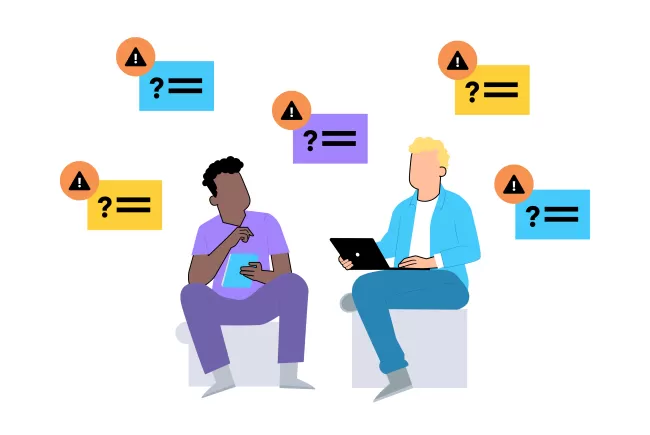We first addressed this topic on the blog ten years ago and it still holds true that many illegal or inappropriate interview questions come out unintentionally in a conversational tone; however, as a job seeker, it is important for you to understand protected classes in the United States and what can be asked of you in an interview. The U.S. Equal Employment Opportunity Commission has a lot of information on this topic and it covers prohibited employment policies/practices on this website.
Protected classes are groups of people who are protected from employment discrimination based on certain characteristics under federal, state, and local laws. The U.S. Equal Employment Opportunity Commission considers the following characteristics to be protected classes under federal law: race, color, religion, sex (including pregnancy, sexual orientation, and gender identity), national origin or ethnicity, age (40 or older), disability, genetic information (including family medical history), citizenship. State and local laws may out line additional protected classes.
Illegal interview questions are those that touch on topics unrelated to the job requirements and can lead to discrimination based on these protected classes.
Some Examples of Illegal Interview Questions and Legal Alternatives:
1. Work/Visa Status and Citizenship
- Illegal: Are you a U.S. citizen? You sound like you have an accent, where are you from? Where were your parents born? What is your native language?
- Legal: Are you authorized to work in the U.S.? What languages do you speak (if relevant to the position)?
2. Marital/Family Status/Sexual Orientation/Gender – EEOC Link
- Illegal: Are you married? Do you have children? If so, what do you do for childcare? Are you planning to have children soon? Have you ever been divorced? Where is your spouse employed?
- Legal: Are you willing and able to put in the amount of overtime and/or travel the position requires? Are you willing to relocate?
3. Age
- Illegal: How old are you? When were you born? How long have you been working?
- Legal: Do you have any concerns about handling the long hours and extensive travel that this job entails?
4. Disability Status
- Illegal: Do you have any disabilities or medical conditions? How is your health? Do you take any prescription drugs? Have you been diagnosed with a mental illness? Have you ever been in rehab?
- Legal: Are you able to perform this job with or without reasonable accommodation? Do you have any conditions that would keep you from performing this job?
- NOTE: For certain positions, employers may require that a job candidate pass a medical exam relevant to the job responsibilities and/or pass a drug test.
** If you are a trainee at the NIH and you want to talk about accommodations needed in the workplace, you should connect with an OITE career counselor and the Director of OITE, Dr. Sharon Milgram. You can also reach out to an EDI Reasonable Accommodation Consultant to initiate a request.
5. Religion
- Illegal: What is your religion? Are you practicing?
- Legal: Can you work on weekends? (should only be asked if the position requires weekend work)
- NOTE: Questions about an applicant’s religious affiliation or beliefs are generally non-job-related and problematic under federal law. Religious organizations are exempt from federal laws enforced by the U.S. Equal Employment Opportunity Commission when it comes to hiring individuals based on religion.
Three Options for Answering Illegal Questions:
1. Answer It: If you believe the interviewer innocently asked the question, you might choose to answer. Consider the intent behind the question. For example, if they ask about your birthplace to make a personal connection, you might answer if comfortable.
2. Side-step It: Discreetly refuse to answer the question but address the concern. For instance, if asked about children, you could say, “I can assure you that my personal life will not interfere with my professional responsibilities.”
3. Question the Relevance: Ask the interviewer how the question relates to the job. This can highlight the inappropriateness of the question. If you feel the question is discriminatory, you can refuse to answer and either change the subject or excuse yourself from the interview.
What Employers Should Know:
Not all interviewers are well versed in employment law and policies. Employers have a responsibility to ensure their hiring practices comply with anti-discrimination laws. Training interviewers on appropriate questioning techniques and focusing interviews on job-related criteria and competencies can help prevent illegal questions from being asked.
The U.S. EEOC website addresses this topic “What Can’t I Ask When Hiring?”.



